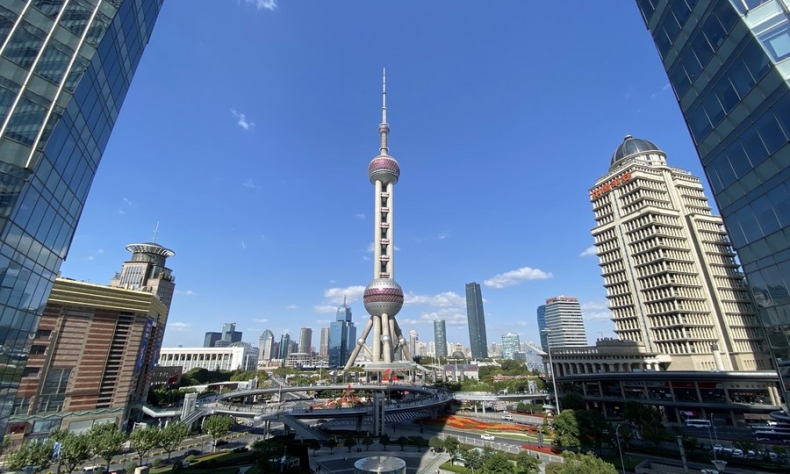A Continuation of Development Momentum

While being a logical continuation of the previous FYP, China through its 14th FYP has refocused on some of the most pressing needs of the people and nations that would like to work hand in hand with China to build a prosperous world with a shared economy.
In recent decades, China has engaged in a new development model and innovative path of governance that has brought positive changes to the world in general, and improved the livelihoods of the Chinese people in particular. In its traditional Five-Year Plan (FYP), the country usually outlines the basic principles and philosophy for its development during the upcoming quinquennium. While highlighting the main progress made in the 13th FYP period (2016-2020), the 2021 two sessions held in Beijing deliberated and discussed the 14th FYP (2021-2025). The new plan proposals focus on the most urgent challenges of the time.
From an African perspective, the proposals for mapping out a blueprint for China’s development in the next five years have the following five points that particularly draw the attention of millions of young Africans for whom China’s opening up brought a puff of new air to revitalize Africa:
China to Promote Ecological Civilization. The continent of Africa has been one of the most affected by climate change. While we all agree with scientists that climate change is mostly triggered by human activities, only few main industrial powerhouses (polluters) agree to cut down their carbon emissions for the sake of the whole of humanity. According to China’s development proposals, it will make an action plan to achieve the goal of having carbon emissions peak before 2030. Its concept of “ecological civilization” sounds perfect to address the attitude that should be adopted by highly responsible nations that aim to build a strong, modern and eco-friendly civilization for the benefit of this generation and the ones to come. China could be such a model for the modern world if it fulfills its pledges on green development goals by 2030.
China to Enhance People-centered Governance. Despite undeniable achievements made by China in lifting millions of people out of poverty, and enhancing the rule of law in its society, some Western media outlets have been voicing criticism on China under the guise of “human rights,” interfering in China’s internal affairs. The CPC’s proposals stressed “sticking to a people-centered approach, adopting a new vision for development, deepening reform and opening up, and sticking to systematic concepts.” To improve people’s wellbeing and enhance people-centered governance, China is no doubt committed to safeguarding human rights.
China to Build an Open Economy at a Higher Level. China is one of the world’s biggest market economies. China’s opening-up policy has significantly lifted the developing world’s economy and provided alternative markets for African economies. China “will enhance the level of opening up, promote trade and investment liberalization and facilitation, and strengthen the comprehensive competitiveness of foreign trade,” according to its development proposals.
China to Jointly Boost High-quality Construction of the Belt and Road. The Belt and Road construction has been a global initiative since its creation with regards to the many countries that have signed up to be part of it. Belt and Road countries around the world are looking for a “mutually beneficial cooperation system on industrial and supply chains, to enhance international cooperation on capacity and expand bilateral trade and investment,” just as mentioned in the country’s 14th FYP document.
China Pledges an Active Role in Reforming Global Economic Governance. As the world’s less developed continent, Africa urgently needs the reform of the global economic system. For African countries to be able to reach their development goals set in the AU’s Agenda 2063, there is an urgent need for foreign direct investment (FDI) on the continent as well as the need for African countries to have a bigger share in the global market system. China is already the leading investor in Africa, followed by the United States and France. According to the FDI Intelligence and EY Africa Attractiveness Report, 2019, China was the largest investor in terms of total capital, investing more than twice the dollar amount of France or the United States in 2019. Africa is on a path to secure its rightful place in the global economic governance system. Therefore, the country’s pledge that “China will make more efforts to defend the multilateral trading system, contribute to the reforms of the World Trade Organization and help make the global economic governance system fairer and more rational” is warmly welcome.
In a word, while being a logical continuation of the previous FYP, China through its 14th FYP has refocused on some of the most pressing needs of the people and nations that would like to work hand in hand with China to build a prosperous world with a shared economy.
Taling Tene Rodrigue is a research fellow at the Institute of African Studies and vice director of the Center for Francophone Studies, Institute of African Studies, Zhejiang Normal University.
 Facebook
Facebook
 Twitter
Twitter
 Linkedin
Linkedin
 Google +
Google +










